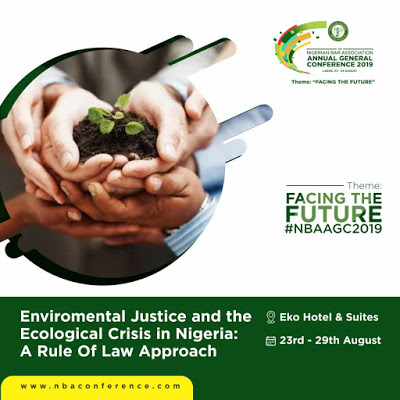
Case Review:
Centre for Oil Pollution Watch v. NNPC [2019] 5 NWLR (Pt. 1666) 518
LOCUS STANDI AND THE RIGHT OF NGO TO SUE IN A PUBLIC LITIGATION AS IT RELATES TO ENVIRONMENTAL POLLUTION CAUSED BY OIL SPILLAGE
At the Supreme Court, learned Counsel for the NGO (the Appellant), Prof. Joseph Mbadugha, amici curiae – Aiwaju Adegboyega Awomolo, SAN, Lucious Nwosu, SAN and A. B. Mahmoud, SAN were of the view that the Appellant has the requisite locus standi to sue, having shown and demonstrated the required interest to entitle it to sue. They argued that any person with genuine and public-spirited intention should be permitted to approach the court with respect to public interest matters such as the one in the instant case. They urged the Court to expand the frontier and relax the concept of locus standi as applicable to environmental litigation.
– Learned Counsel for NNPC (the Respondent), Victor Ogude Esq., and amicus curiae – Chief Wole Olanipekun, SAN and Dayo Apata, (Solicitor-General of the Federation representing Abubakar Malami, SAN (the Attorney General of the Federation and Minister of Justice) sought to persuade the Court that the Appellant is a mere busybody or troublemaker (with an abstract corporate soul), usurping the rights of the affected citizens to complain. They also argued that extending the scope of locus standi to accommodate an NGO such as the Appellant in respect of environmental degradation matters would have the effect of usurping the powers conferred on agencies and offices like the Attorney-General’s office established by various State and Federal Laws to protect the environment on behalf of the people. They relied on several statutes which they submitted, have taken care of the Appellant’s grouse. It was also contended that allowing the Appellant standing to sue would open the floodgates to frivolous litigation which will overwhelm the courts’ dockets.
Thankfully, the Supreme Court came to the rescue. After a review of a host of local and international authorities, statutes and case law, and after due consideration of the compelling submissions of learned Counsel and Senior Counsel invited as ‘Friends of the Court’, the Supreme Court rightly observed and unanimously concluded as follows:
The Appellant has the right to institute the action (thereby expanding the scope of locus standi on environmental matters).
There is nothing in the Constitution that says the Attorney-General is the only proper person clothed with standing/power to enforce the performance of a public duty or institute public interest litigation such as the instant suit.
at p. 580-581, paras. G-B, of the report, Aka’ahs, JSC unequivocally stated:
“There is no gain saying in the fact that there is increasing concern about climate change, depletion of the ozone layer, waste management, flooding, global warming, decline of wildlife, air, land and water pollution. Both nationally and internationally, countries and organizations are adopting stronger measures to protect and safeguard the environment for the benefit of the present and future generations. The issue of environmental protection against degradation has become a contemporary issue. The Plaintiff/Appellant being in the vanguard of protecting the environment should be encouraged to ensure that actions or omissions by Government agencies or Multi-national oil companies that tend to pollute the environment are checked. Since other commonwealth countries such as England, Australia and India have relaxed their rigidity in the application of the concept oflocus standi in public interestlitigation, Nigeria should follow suit. The communities affected by the spillage leading to the environmental degradation may not muster the financial muscle to sue and if good spirited organizations such as the Plaintiff is denied access to sue, it is the affected communities that stand to lose.”
This ground breaking decision of the Supreme Court will be seriously discussed at the #NBAAGC2019 session on Environmental Justice and the Ecological Crisis in Nigeria: A Rule of Law Approach.
Please join the discussion.
